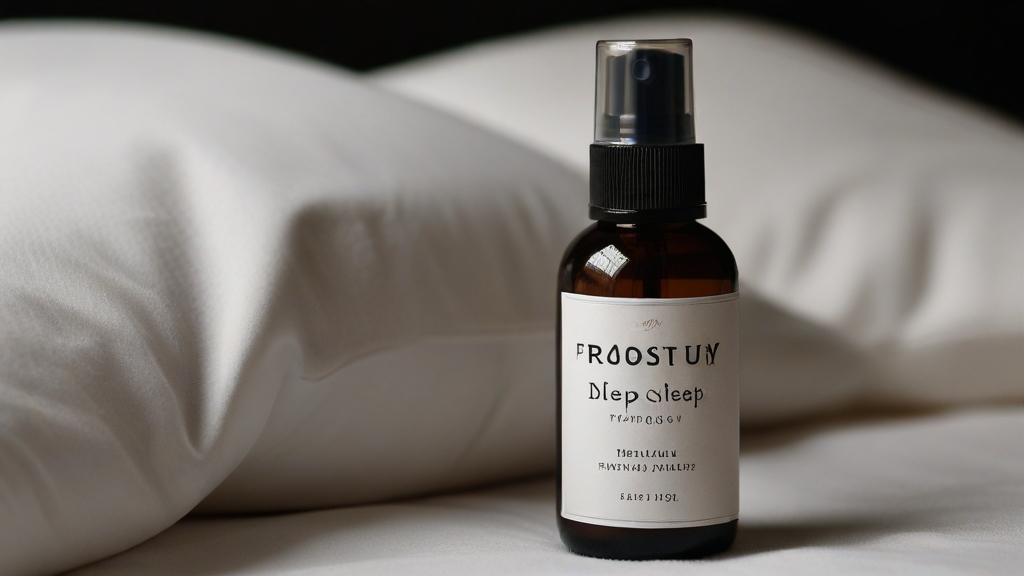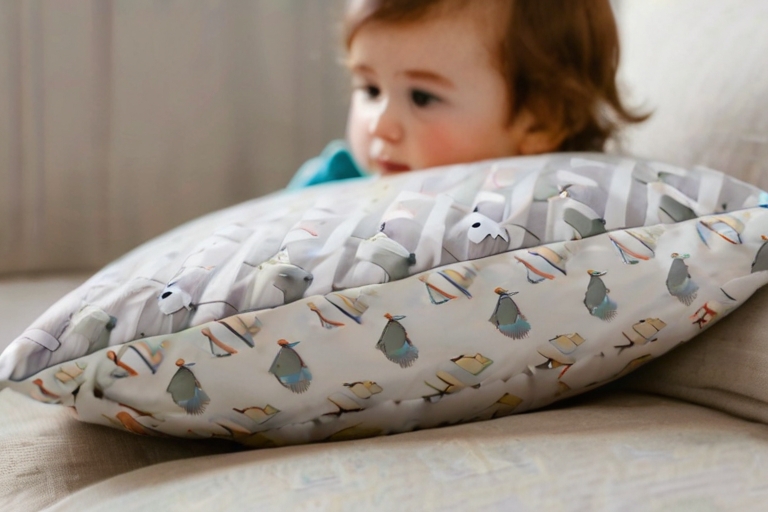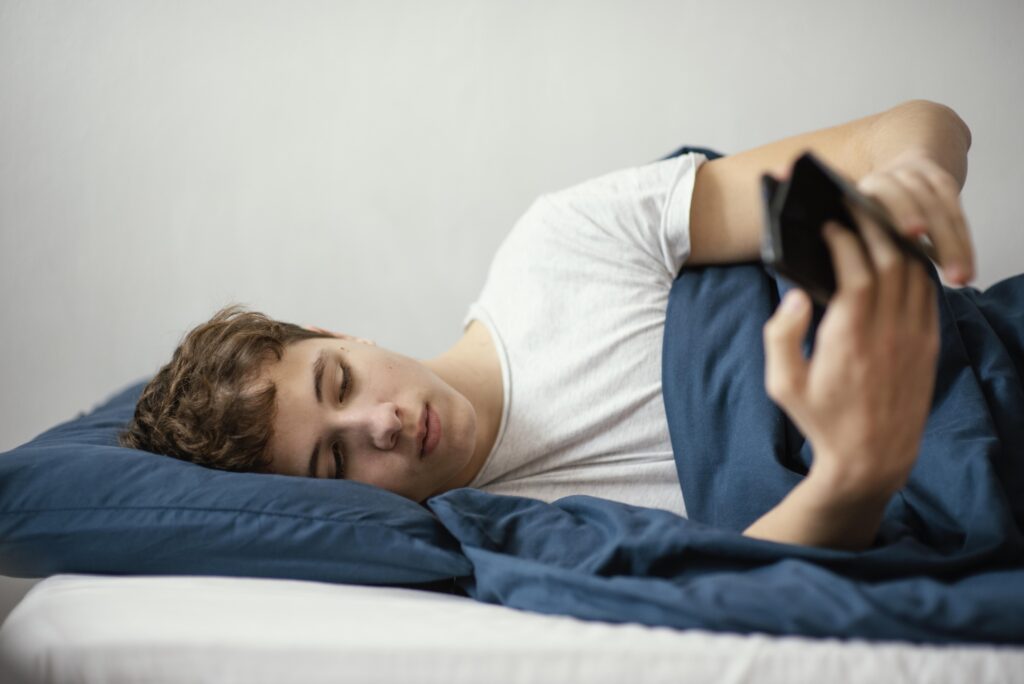In an era where people prioritize for a perfect night sleep, deep sleep pillow sprays have emerged as a popular tool in the sleep aid market. These sprays, include calming essential oils are made to help users fall asleep faster and enjoy a deeper and more restful sleep. However, as with any product involving chemical compounds and daily use, there are potential side effects and risks that users must consider.
What Are Deep Sleep Pillow Sprays?

Deep sleep pillow sprays are typically formulated from a blend of essential oils such as lavender, chamomile and vetiver. These oils are known for their relaxing and sedative properties. Users spray a small amount onto their pillow before bedtime and the idea is that the inhalation of these scents throughout the night aids in calming the mind and enhancing sleep quality.
Deep Sleep Pillow Spray Ingredients
Deep sleep pillow sprays typically contain a variety of ingredients aimed at promoting relaxation and aiding in sleep. Here are some common ingredients found in these sprays and their roles:
- Lavender Essential Oil: Lavender is one of the most popular ingredients in sleep sprays due to its calming and soothing properties. It is believed to reduce anxiety and promote relaxation, helping to induce a state conducive to sleep. Lavender oil is known for its mild sedative effects, which can help ease tension and stress, thereby aiding in falling asleep faster and improving sleep quality.
- Chamomile Essential Oil: Chamomile is another widely used ingredient in sleep aids due to its calming and sedative properties. It contains compounds like apigenin, which binds to certain receptors in the brain that may promote relaxation and reduce anxiety. Chamomile oil can help calm the nervous system and alleviate insomnia symptoms, making it beneficial for improving overall sleep quality.
- Valerian Root Extract: Valerian root is known for its sedative and sleep-promoting effects. It hold substances that increase the levels of gamma-aminobutyric acid (GABA) inside the brain, which ultimately calm the central nervous system. Valerian root extract is often used to reduce the time it takes to fall asleep, improve sleep quality and alleviate symptoms of insomnia.
- Bergamot Essential Oil: Bergamot oil is obtained from the peel of bergamot oranges and is known for its bright and refreshing citrus aroma. It has mood-enhancing properties and may help reduce stress and anxiety levels, which can indirectly support better sleep by promoting relaxation and emotional balance.
- Ylang Ylang Essential Oil: Ylang ylang oil is extracted from the flowers of the ylang ylang tree and is valued for its calming and antidepressant properties. It can help reduce stress, promote relaxation and lower heart rate, which are beneficial for improving sleep quality and aiding in falling asleep more easily.
- Clary Sage Essential Oil: Clary sage oil has a soothing aroma that can help alleviate anxiety and promote relaxation. It may help regulate cortisol levels, which are involved in the body’s stress response, thereby supporting a calm state conducive to sleep. Clary sage oil is often used in sleep sprays to help induce feelings of tranquility and reduce insomnia symptoms.
- Linalool: Linalool is a naturally occurring terpene found in several essential oils, including lavender and chamomile. It has sedative and anxiolytic (anti-anxiety) properties that can help reduce stress levels and promote relaxation. Linalool is believed to modulate the activity of neurotransmitters in the brain, such as GABA, which plays a key role in regulating sleep.
While these natural components are generally safe, some sprays also include less natural, more synthetic additives to enhance the fragrance or prolong the scent’s lifespan, which can be problematic.
5 Side Effects of Deep Sleep Pillow Spray
Despite having several benefits, side effects of deep sleep pillow sprays also have a role here, following are some major side effects of deep sleep pillow sprays:
1. Disruption of Natural Sleep Patterns
- Deep sleep pillow sprays are designed to promote relaxation and sleepiness through their scent or ingredients. While initially helpful for falling asleep faster, regular use might disrupt the body’s natural sleep-wake cycle.
- Dependency on the spray to induce sleep can develop, where individuals may find it increasingly difficult to fall asleep without using the spray. This dependency can lead to a reliance on external aids rather than allowing the body to naturally regulate sleep.
2. Dependency and Tolerance
- Continuous use of deep sleep pillow sprays may result in tolerance, where the body adapts to the ingredients. This can diminish the effectiveness of the spray over time, requiring higher doses or more frequent use to achieve the same sleep inducing effect.
- Psychological dependency can also develop, where individuals feel they need the spray to sleep, even if the physical tolerance hasn’t developed. This can contribute to anxiety or stress when the spray is not available.
3. Allergic Reactions and Respiratory Issues
- Pillow sprays often contain essential oils, fragrances or other chemicals that can trigger allergic reactions in sensitive individuals. common symptoms include skin redness, itching, swelling or respiratory issues such as sneezing, coughing or difficulty breathing.
- Aerosolized particles from the spray can irritate the respiratory tract, particularly if someone is sensitive to airborne chemicals or has underlying respiratory conditions like asthma.
- Direct contact with pillow sprays can cause skin irritation or sensitization, especially if someone has sensitive skin or is allergic to specific ingredients. Symptoms may include redness, itching, a burning sensation or a rash where the spray has been applied. Prolonged or repeated exposure can cause these symptoms, leading to chronic skin issues or dermatitis.
4. Chemical Exposure and Potential Toxicity

- Ingredients in pillow sprays, including synthetic fragrances and preservatives, may pose risks with prolonged exposure. These chemicals can be absorbed through the skin or inhaled, potentially leading to systemic effects over time.
- Chronic exposure to certain chemicals found in sprays has been associated with adverse health effects such as hormonal disruption, neurotoxicity or even carcinogenicity in some cases.
5. Environmental Concerns
- The use of synthetic chemicals in pillow sprays contributes to environmental pollution when released into the air or disposed of improperly. This includes aerosol emissions and residues that can accumulate in indoor environments.
- Some ingredients may persist in the environment, affecting ecosystems and wildlife. Improper disposal can lead to contamination of water sources or soil, posing long-term environmental risks.
Psychological Impacts
There is also psychological component to consider. Regular use of pillow sprays can create a psychological dependency, similar to a placebo effect, where the user believes they cannot achieve deep sleep without the aid of the spray, potentially masking underlying issues that contribute to poor sleep.
Alternatives to Using Deep Sleep Pillow Sprays
For those concerned about the side effects of deep sleep pillow sprays, there are numerous natural and effective alternatives.

- Natural Essential Oils: Use a diffuser with calming essential oils such as lavender, chamomile or cedarwood. These oils have soothing properties that can help relax the mind and body before bedtime.
- Herbal Teas: Drink herbal teas like chamomile, valerian root or passionflower tea before bed. These herbs have natural sedative effects that can promote relaxation and improve sleep quality.
- Aromatherapy Roll-Ons: Opt for roll-on essential oil blends specifically designed for relaxation and sleep. Apply these blends to pulse points such as wrists, temples or behind the ears to enjoy the calming benefits of aromatherapy without aerosols.
- Bedtime Rituals: Establish a calming bedtime routine, such as taking a warm bath with soothing bath salts or reading a book under soft, dim lighting. Consistent bedtime rituals can signal to your body that it’s time to unwind and prepare for sleep.
- Room Environment: Create a sleep-friendly environment by ensuring your bedroom is cool, dark and quiet. Use blackout curtains, white noise machines or earplugs to minimize disturbances that could disrupt your sleep.
- Mindfulness and Relaxation Techniques: Practice relaxation techniques such as deep breathing exercises, progressive muscle relaxation or meditation before bed. These techniques can help calm the mind and promote a restful state conducive to sleep.
- Sleep Hygiene Practices: Maintain good sleep hygiene by sticking to a consistent sleep schedule, avoiding caffeine and heavy meals close to bedtime and limiting screen time before bed. These practices can help regulate your body’s natural sleep-wake cycle.
- Natural Supplements: Consider natural supplements such as melatonin or magnesium, which are known to support relaxation and improve sleep quality for some individuals. Consult with your healthcare professional before taking any kind of such supplements.
There are a lot of things can interfere with your sleep patterns, one potential thing is your type of pillow, you can choose the best pillow for sleep apnea.
Conclusion
While deep sleep pillow sprays offer a convenient and alluring solution to sleep disturbances, they come with potential risks that can affect both health and the environment. By understanding these risks and exploring natural alternatives, individuals can make more informed choices about their sleep aids and potentially improve their overall sleep quality without reliance on external products.
FAQs
Can deep sleep pillow sprays cause long term health issues?
Yes, prolonged exposure to certain chemicals in pillow sprays can potentially lead to health issues such as hormonal imbalances and respiratory problems.
Are there natural alternatives to pillow sprays for better sleep?
Yes, alternatives like using essential oil diffusers, practicing relaxation techniques or improving sleep hygiene can be effective without the risks associated with sprays.
Can using pillow sprays lead to skin problems?
Yes, individuals with sensitive skin may experience irritation or allergic reactions to the ingredients in some pillow sprays.
Can deep sleep pillow spray can cause anxiety?
Yes, deep sleep pillow sprays can potentially cause anxiety in some individuals, particularly those sensitive to certain scents or ingredients. Responses to aromatherapy products can vary, and it’s important to monitor personal reactions and discontinue use if feelings of anxiety or discomfort arise.
Is deep sleep pillow spray safe for kids?
No, deep sleep pillow sprays are not generally recommended for children, especially infants and very young children, due to potential risks of respiratory irritation and skin sensitivity. It’s advisable to consult with a pediatrician before considering any sleep aids for children.

I am a scientific researcher, passionate about the science of comfort. On this blog, I share comprehensive information about pillows, combining my expertise and research to help you find the perfect pillow for your needs.


Pingback: Does Pillow Mist Cause Acne?
Your article helped me a lot, is there any more related content? Thanks!